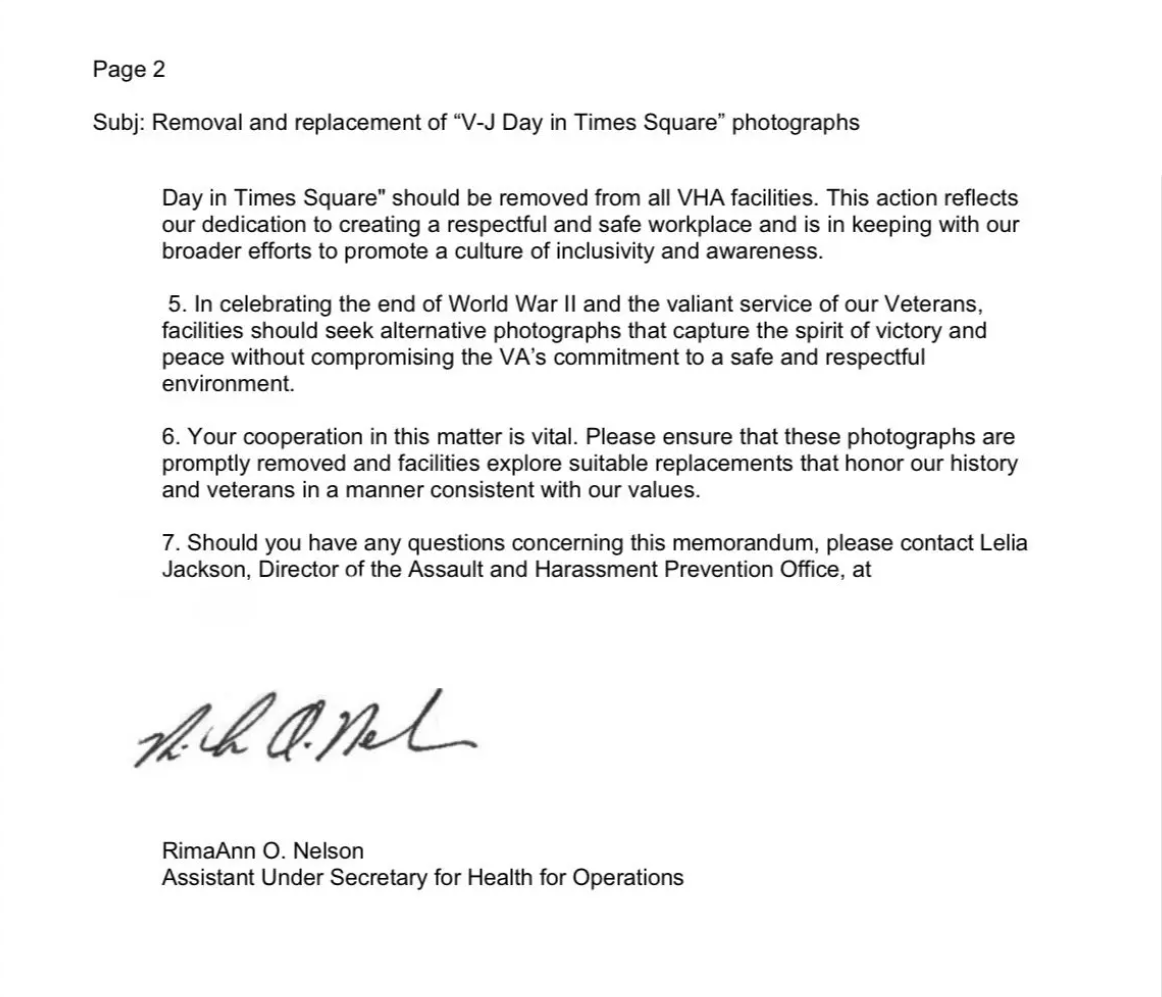The Department of Veterans Affairs found itself at the center of a controversy over the iconic “V-J Day in Times Square” photograph. Initially, a memo calling for the removal of the photograph from VA facilities sparked an uproar, citing it as a depiction of a non-consensual act that clashed with the VA’s commitment to a safe and respectful environment. This decision was swiftly reversed by VA Secretary Denis McDonough after he found out about it in a Tweet.
The photograph, capturing a moment of celebration at the end of World War II with a sailor kissing a nurse, has been a symbol of victory and celebration for decades. However, the backdrop of the #MeToo movement and evolving discussions about consent have reframed perceptions of the image, challenging its place in public institutions.
Critics of the initial decision to remove the photograph argued that it erases a significant moment in history and undermines the sacrifices of the Greatest Generation. Supporters of the photograph, including family members of the individuals depicted, stress the spontaneity and celebratory nature of the moment, often pointing out that the individuals involved did not view the act as malicious.
The controversy highlights a broader societal struggle to balance respect for historical context with evolving standards of behavior and inclusivity. The VA’s issued a rapid reversal, attributed to a miscommunication and unauthorized action by a department official.
As this incident demonstrates, the intersection of history, public memory, and modern social values is fraught with challenges. It prompts a reconsideration of how we commemorate historical events and the images associated with them, ensuring they reflect not only the past but also the inclusive and respectful ethos of the present. This episode serves as a reminder of the ongoing negotiation between honoring heritage and embracing a future that seeks to understand and respect the nuances of human interactions across time.













